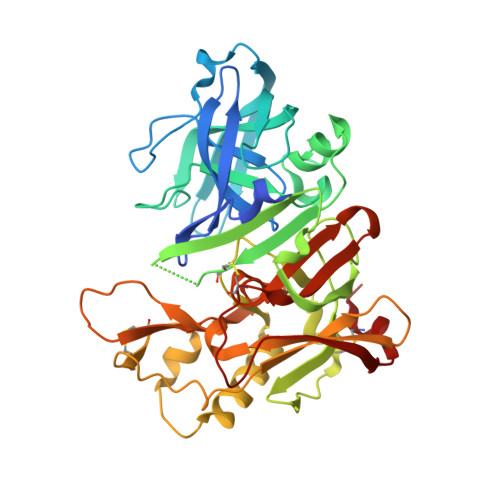Application of fragment screening by X-ray crystallography to the discovery of aminopyridines as inhibitors of beta-secretase.
Congreve, M., Aharony, D., Albert, J., Callaghan, O., Campbell, J., Carr, R.A., Chessari, G., Cowan, S., Edwards, P.D., Frederickson, M., McMenamin, R., Murray, C.W., Patel, S., Wallis, N.(2007) J Med Chem 50: 1124-1132
- PubMed: 17315857
- DOI: https://doi.org/10.1021/jm061197u
- Primary Citation of Related Structures:
2OHP, 2OHQ, 2OHR, 2OHS, 2OHT, 2OHU - PubMed Abstract:
Fragment-based lead discovery has been successfully applied to the aspartyl protease enzyme beta-secretase (BACE-1). Fragment hits that contained an aminopyridine motif binding to the two catalytic aspartic acid residues in the active site of the enzyme were the chemical starting points. Structure-based design approaches have led to identification of low micromolar lead compounds that retain these interactions and additionally occupy adjacent hydrophobic pockets of the active site. These leads form two subseries, for which compounds 4 (IC50 = 25 microM) and 6c (IC50 = 24 microM) are representative. In the latter series, further optimization has led to 8a (IC50 = 690 nM).
Organizational Affiliation:
Astex Therapeutics Ltd., 436 Cambridge Science Park, Milton Road, Cambridge CB4 0QA, United Kingdom. m.congreve@astex-therapeutics.com


















